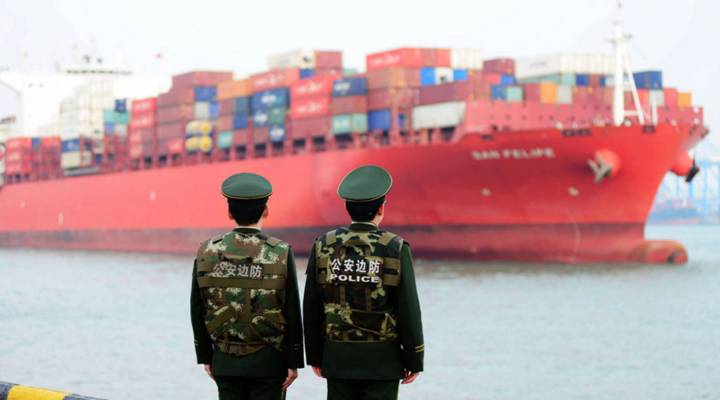
U.S.-China trade war? Not many people in China think it’s likely
U.S.-China trade war? Not many people in China think it’s likely

President Donald Trump wrote on Twitter that a trade war might be something the U.S. could easily win. While he did not specifically name any country, it is believed concern about China is driving many of the current trade investigations in Washington.
Reaction in China was subdued.
State-run CCTV did not cover Trump’s demand for tariffs on steel and aluminum imports in its main evening newscast. Other Chinese media have not covered much on U.S.-China trade frictions either.
“This is very normal,” financial analyst Ye Tan said. “If the Chinese government hasn’t decided or is still negotiating an issue, or the issue is sensitive, then the state media won’t report on it to prevent unnecessary public debate,” she explained.
That’s why very few people in Shanghai’s financial district of Lujiazui were aware of the proposed U.S. tariffs, like IT worker Liu Han.
He didn’t seem worried either.
“For ordinary citizens, if you don’t have an export business, there should be no impact,” Liu said.
Some people studying at the New York University’s Shanghai campus also said they weren’t interested.
“As a student, I don’t feel the news has much direct impact on my life,” Portia Liu, who is studying humanities at NYU, said.
“It’s not a big deal in China,” NYU computer science student Yi Min said.
One of the reasons for this sentiment is because Chinese products have faced many U.S. trade barriers over the years. The latest tariffs threats were just one more and some industry executives said they were prepared for it.
U.S. officials said that China subsidizes its industries, so its exporters have an unfair advantage over American producers. Trump even cited national security concerns when he demanded a 25 percent tariff on steel and 10 percent on aluminum imports last week.
If the tariffs go through, the impact on steel producers in China wouldn’t be great, since the U.S. market isn’t even among China’s top 10 export destinations. Li Xinchuang, with the China Iron and Steel Association called Trump’s demand “stupid.”
China’s government hasn’t just issued statements, it has also taken action, launching an anti-dumping investigation into U.S. sorghum — an animal feed — in February. It accused the U.S. of exporting under-priced sorghum to China.
However, officials in China say that they don’t want a trade war. Trade in goods between the two countries totals more than $580 billion, according to China’s National People’s Congress spokesperson and former ambassador to the U.S., Zhang Yesui.
“With such a big relationship it is natural that there are some frictions,” Zhang said at a press conference on Sunday. “China does not want a trade war with the United States, but if the U.S. takes actions to hurt China’s interests, China will not sit idly by and will take the necessary measures,” Zhang said.
Back on the streets of Shanghai, not many people were worried that things would escalate.
“If you think about it, a trade war will also hit the U.S. economy. Many Americans have also opened trade companies in China,” said Kevin, who wouldn’t give his last name.
Many people who spoke to Marketplace also did not buy President Trump’s claim on Twitter that the U.S. could easily win a trade war.
Analyst Ye said Trump is playing to his base.
“He also wants to let China know that he is a fierce person, but China will not change course because of that,” she said.
In other words, the threat of a trade war won’t pressure China to make the changes America wants, unless it is ready to.
| Tariffs may help Big Steel, but hurt the smaller manufacturers |
| What you need to know about Trump’s steel and aluminium tariffs |
| How seriously should the world take this tariff talk? |
There’s a lot happening in the world. Through it all, Marketplace is here for you.
You rely on Marketplace to break down the world’s events and tell you how it affects you in a fact-based, approachable way. We rely on your financial support to keep making that possible.
Your donation today powers the independent journalism that you rely on. For just $5/month, you can help sustain Marketplace so we can keep reporting on the things that matter to you.


















